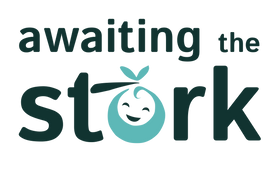10 pre-pregnancy health tips for optimal fertility

Thinking about starting a family? Preparing for pregnancy can be an exciting and empowering time, and getting your mind and body ready is a great way to support a healthy, joyful journey into motherhood.
This pre-pregnancy checklist covers the essentials—from gathering your support team to making lifestyle adjustments—to help you feel prepared, healthy, and confident as you embark on this adventure.
1. Gather your support team
Having a reliable team in place can make all the difference. Reach out to professionals who will support you along the way:
- OB/GYN: An obstetrician/gynecologist can help assess your health, address any concerns, and offer preconception advice. Schedule a preconception appointment to discuss your health, family medical history, and any specific questions you may have.
- Doula or Midwife: If you’re interested in additional support, consider speaking with a doula or midwife. They can provide guidance throughout pregnancy, labor, and even the postpartum period, offering a comforting, personal touch.
2. Choose a prenatal vitamin with folate
A high quality prenatal vitamin with folate is crucial for supporting the early stages of pregnancy, particularly neural tube development. Folate (the natural form of folic acid) is essential in preventing neural tube defects, so aim to start taking it at least three months before conceiving.
- Our recommendation: One A Day Pregnancy Planning Prenatal Multivitamin
3. Pause on alcohol and smoking
It’s a great idea to cut out alcohol and tobacco before trying to conceive. Smoking and alcohol can impact fertility and the health of a developing baby, so pausing these habits now can create a healthier environment for conception.
4. Aim for 30 minutes of daily movement
Regular exercise can improve fertility and help prepare your body for the changes ahead. Aim for 30 minutes of movement or exercise daily, whether it’s a brisk walk, yoga, or a low-impact workout. Staying active now can make it easier to stay fit and feel energized during pregnancy.
5. Limit caffeine intake to under 200mg a day
If you’re a coffee lover, you may want to scale back a bit. Experts recommend limiting caffeine to under 200 mg daily—roughly the equivalent of two small (8 oz) cups of coffee. This adjustment can prepare you for the caffeine limitations during pregnancy and support a balanced approach to your health.
6. Explore other supplements and natural remedies
Besides folate, there are other supplements and natural remedies that can support pre-pregnancy health. Always consult with your healthcare provider before starting any new supplements, but here are some popular options to consider:
- Vitamin D: This vitamin plays a role in immune function and hormone balance, both of which are important for conception. Many women find it beneficial to check their vitamin D levels and supplement if necessary.
- Omega-3 Fatty Acids: Omega-3s can support hormone balance and brain health. Fish oil supplements or plant-based sources like flaxseed oil are convenient ways to add omega-3s to your daily routine.
- Probiotics: A healthy gut is linked to balanced hormones and overall well-being. Adding a daily probiotic can be an excellent way to support gut health.
- Herbal teas: Many women find natural teas like red raspberry leaf or nettle helpful in preparing their bodies for pregnancy. Check with your provider to ensure these are safe for you.
7. Eat a balanced, nutrient-rich diet
Nourishing your body with a healthy diet can enhance fertility and prepare your body for pregnancy. Focus on whole foods rich in vitamins, minerals, and antioxidants, like leafy greens, fruits, lean proteins, and whole grains. Avoid highly processed foods as much as possible, and aim to incorporate a variety of nutrient-dense options each day.
8. Stay hydrated
Drinking enough water is essential for overall health, especially when trying to conceive. Aim for at least 8 glasses of water a day to keep your body hydrated, support digestion, and maintain energy levels.
9. Track your cycle and fertile window
Understanding your menstrual cycle and tracking your ovulation can be incredibly helpful when trying to conceive. Consider using a tracking app to pinpoint your fertile window, making it easier to plan for conception. Many apps offer insights into your cycle and can help you learn more about your body.
10. Prepare emotionally and mentally
Starting a family is a big step, and emotional readiness is just as important as physical preparation. Take time to reflect on this journey, discuss any concerns or hopes with your partner, and make space for the emotional shifts that come with this new chapter.
General health checkups
Consider getting a general health checkup, including dental and eye exams, before trying to conceive. Addressing any underlying health issues ahead of time can give you peace of mind and help you feel ready for a healthy pregnancy.
Final thoughts
This pre-pregnancy checklist is a wonderful way to set yourself up for a smooth, healthy journey to motherhood. Small steps like gathering your support team, adjusting lifestyle habits, and nourishing your body can make a big difference. Take this time to celebrate, care for yourself, and enjoy the exciting path that lies ahead.


